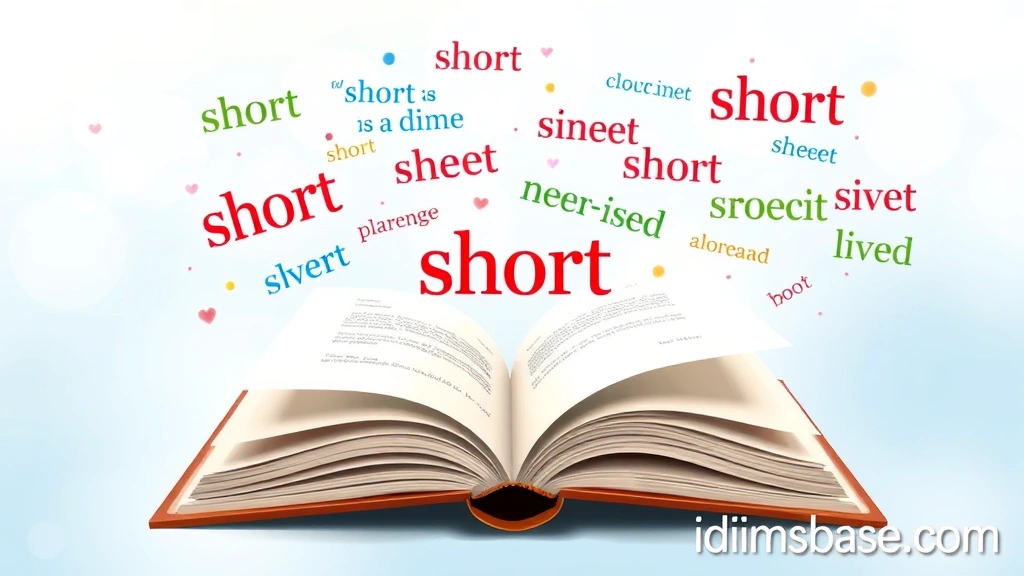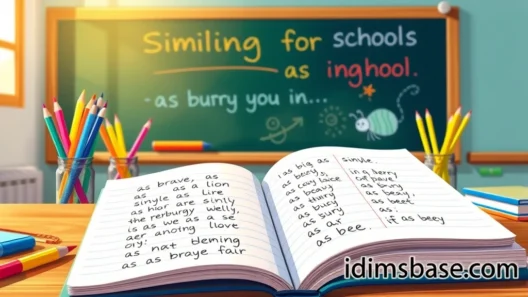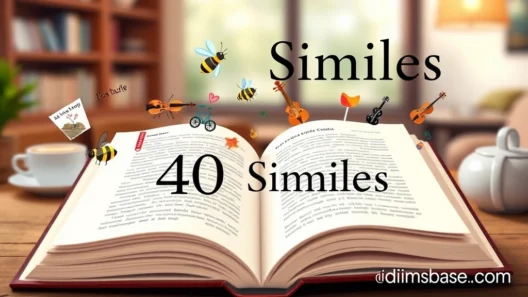Have you ever found yourself searching for the perfect way to describe something incredibly brief, fleeting, or concise? We all have! Sometimes, "short" just doesn't cut it. You want to paint a vivid picture, to make your description leap off the page or out of your mouth. That's where similes come in, and today, we're diving headfirst into a treasure trove of delightful and descriptive similes for "short." Get ready to elevate your language and add a touch of sparkle to your everyday conversations and writing!
Why Do We Need Similes for "Short"?
Think about it: "The meeting was short." Okay, but how short? Was it short and sweet like a quick, pleasant chat, or short and abrupt like a bad phone connection? Similes allow us to add nuance, emotion, and a touch of the extraordinary to the ordinary. They help us connect with our audience on a deeper level by using relatable imagery. Plus, they're just plain fun to use!
Let's explore some fantastic ways to say "short" without actually saying "short."
Similes That Capture Brevity in Time
When you're talking about something that lasts for a very limited duration, these similes will be your best friends.
1. Short as a hiccup
Isn't this just perfect? Hiccups are notoriously brief, often surprising, and gone before you know it. This simile evokes a sense of suddenness and fleetingness.
- "His attention span was as short as a hiccup; he kept getting distracted."
- "The summer storm was as short as a hiccup, barely wetting the pavement before the sun reappeared."
2. Short as a blink of an eye
This classic simile beautifully conveys extreme brevity. A blink is almost instantaneous, making this perfect for moments that pass in a flash.
- "The entire performance was as short as a blink of an eye, leaving the audience wanting more."
- "In a crisis, time can feel as short as a blink of an eye, making every second count."
3. Short as a flash of lightning
Lightning is incredibly powerful but incredibly transient. This simile adds a dramatic flair to the idea of something being over quickly.
- "Her temper was as short as a flash of lightning – intense but quickly gone."
- "The celebrity's visit was as short as a flash of lightning, leaving everyone buzzing."
4. Short as a gasp
A gasp is an involuntary, quick intake of breath, often in response to surprise or shock. It's a great way to describe something that happens suddenly and briefly.
- "His explanation was as short as a gasp, barely audible."
- "The moment of silence was as short as a gasp before the applause erupted."
5. Short as a dream
Dreams, especially vivid ones, can feel incredibly real but are often gone the moment you wake up. This simile suggests something ephemeral and perhaps a little elusive.
- "Their whirlwind romance was as short as a dream, beautiful but ultimately fleeting."
- "The vacation felt as short as a dream, leaving me wishing I could go back."
6. Short as a breath
A single breath is a fundamental, almost unconscious, brief act. This simile emphasizes the natural, quick passage of time.
- "The pause in the music was as short as a breath, almost imperceptible."
- "Her patience was as short as a breath when dealing with rudeness."
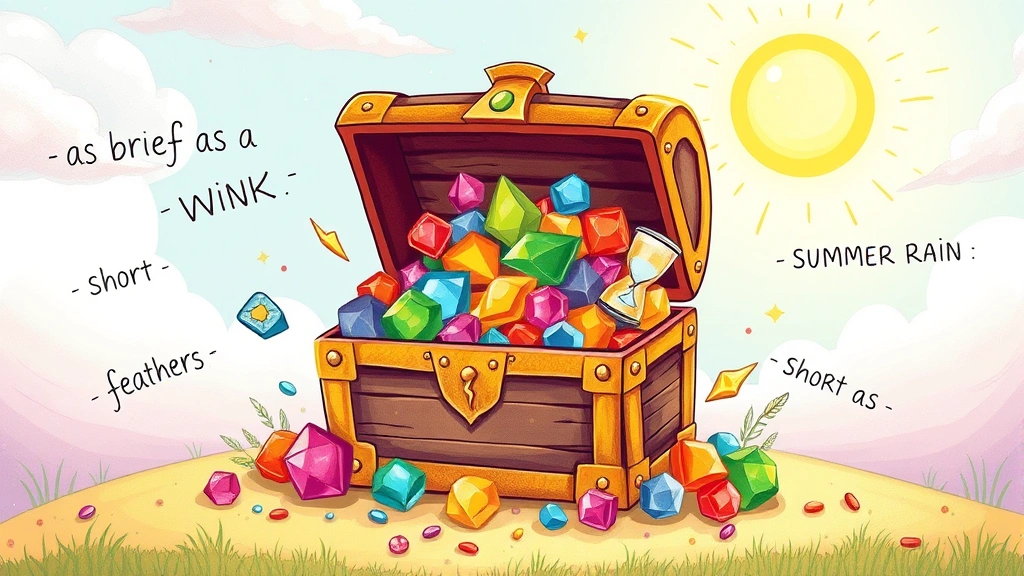
Similes That Describe Physical Shortness or Conciseness
Sometimes, "short" refers to physical length, height, or the conciseness of a message. These similes are here to help!
7. Short as a stubby pencil
Remember those tiny pencils you’d get at mini-golf courses or when you were nearing the end of a regular pencil? They're practically all stub! This is a wonderfully visual simile.
- "His hair was as short as a stubby pencil, freshly cut."
- "The remaining candle was as short as a stubby pencil, flickering its last light."
8. Short as a pixie cut
A pixie cut is a very short, often layered, hairstyle. This simile is modern, recognizable, and great for describing hair or even other compact things.
- "Her new haircut was as short as a pixie cut, giving her a bold new look."
- "The article was as short as a pixie cut – concise and to the point."
9. Short as a sound bite
In the world of media, a "sound bite" is a very brief extract from a recording, often just a sentence or two. This simile is perfect for concise or oversimplified statements.
- "His political speech was as short as a sound bite, lacking any real substance."
- "The news report was as short as a sound bite, giving only the bare facts."
10. Short as a tweet
Ah, the 21st-century simile! With Twitter's (now X's) character limits, tweets are the epitome of brevity. This simile is instantly understood by a global audience.
- "Her acceptance speech was as short as a tweet, thanking everyone quickly."
- "The memo was as short as a tweet, getting straight to the point without preamble."
11. Short as a fingernail
Fingernails, while they grow, are relatively small and don't take up much space. This simile works well for small physical objects or small amounts.
- "The grass in the freshly mown lawn was as short as a fingernail."
- "He only gave me a warning as short as a fingernail, which was a relief."
12. Short as a child's attention span
We all know this one! Children, especially young ones, are famous for their fleeting focus. This simile is relatable and often used humorously.
- "The professor's lecture was so boring, even my attention span was as short as a child's attention span."
- "Keep the presentation engaging, otherwise, their interest will be as short as a child's attention span."
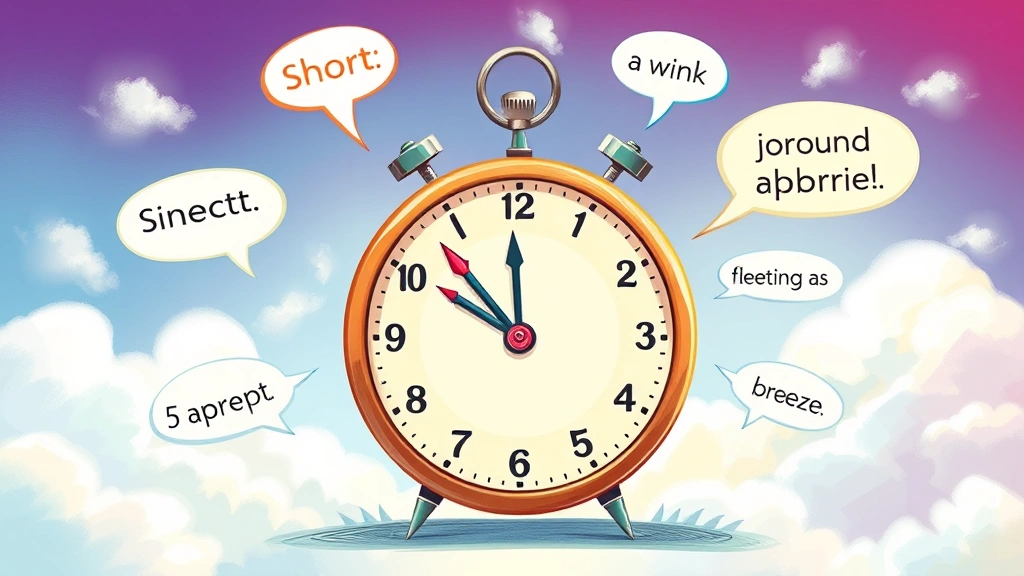
Similes That Emphasize Abruptness or Limitation
Sometimes "short" implies a lack of something – patience, supplies, or even a sudden halt.
13. Short as a curt reply
A curt reply is brief to the point of being rude or abrupt. This simile conveys not just brevity but also a sense of unfriendliness or sharpness.
- "His response to the difficult question was as short as a curt reply, offering no further explanation."
- "The dismissal was as short as a curt reply, leaving no room for discussion."
14. Short as a fuse
This is a classic! A short fuse implies someone who loses their temper very quickly and easily, like a firework with a fuse that burns down in an instant.
- "Be careful what you say; he's got a temper as short as a fuse."
- "The new manager's patience was as short as a fuse when it came to tardiness."
15. Short as supplies in a siege
This simile paints a vivid picture of scarcity and desperation. It's perfect for describing resources that are dwindling rapidly.
- "Their food was as short as supplies in a siege, forcing them to ration carefully."
- "Time before the deadline was as short as supplies in a siege, making every minute critical."
16. Short as a sprint
A sprint is a short, fast race. This simile emphasizes not just brevity but also intensity and speed.
- "The final phase of the project was as short as a sprint, requiring maximum effort from everyone."
- "Their argument was as short as a sprint, quickly resolved but intense while it lasted."
17. Short as a sharp intake of breath
Similar to "short as a gasp," this emphasizes a sudden, brief reaction, often to surprise, shock, or pain.
- "Her cry of alarm was as short as a sharp intake of breath."
- "The silence after the announcement was as short as a sharp intake of breath before the murmurs began."
18. Short as a passing fancy
A passing fancy is a brief, often superficial, interest or liking. This simile conveys fleeting interest or a lack of commitment.
- "His commitment to new hobbies was as short as a passing fancy."
- "Their enthusiasm for the new policy was as short as a passing fancy once they realized the effort involved."
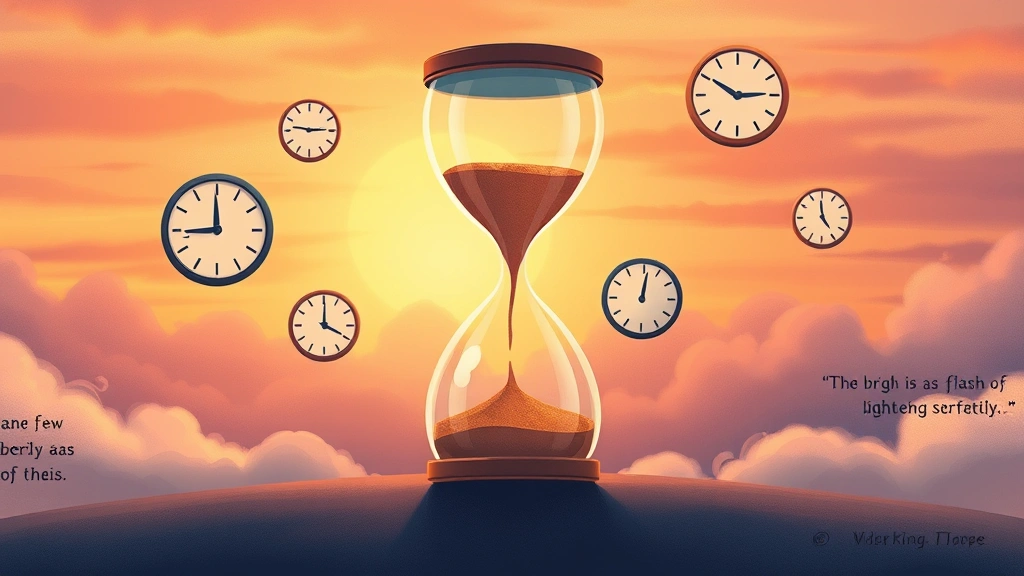
Crafting Your Own Similes
The beauty of similes is their versatility. You can even create your own!
- Think about the essence of "short": Is it quick? Small? Fleeting? Abrupt?
- Brainstorm objects or events that embody that essence: What else is quick? A sneeze? A pop? What else is small? A pea? A pebble?
- Combine them creatively: "Short as a pea," "short as a pop."
The more you practice, the more naturally similes will flow into your language!
Frequently Asked Questions (FAQ)
Here are some common questions you might have about using similes effectively.
Q1: What is the main difference between a simile and a metaphor?
A: This is a fantastic question! The key difference lies in the comparison. A simile compares two different things using the words "like" or "as." For example, "The cloud was as fluffy as cotton candy." It says one thing is like another.
A metaphor, on the other hand, directly states that one thing is another, without using "like" or "as." For example, "The cloud was cotton candy." It implies that one thing is another, suggesting a deeper, more direct identity. Similes are generally easier to understand and more straightforward in their comparison.
Q2: Why should I use similes in my writing or speaking?
A: Oh, there are so many reasons! Similes are like little bursts of color for your language.
- Vivid Imagery: They help your audience visualize what you're describing, making your words more memorable and engaging.
- Clarity and Understanding: By comparing something abstract (like "shortness") to something concrete (like a "hiccup"), you make your meaning clearer and more relatable.
- Emotional Connection: Similes can evoke feelings and add depth to your descriptions.
- Adds Interest and Style: They make your writing or speaking more dynamic, less repetitive, and simply more enjoyable to read or listen to.
- Shows Creativity: Using similes demonstrates your ability to think creatively and express yourself in unique ways.
Q3: Can I use these similes in formal writing, like academic papers or business reports?
A: This is a nuanced one! Generally, in very formal academic papers or highly technical business reports, similes (and other figures of speech) are used sparingly, if at all. The goal in such contexts is usually extreme clarity, conciseness, and objectivity, and figurative language can sometimes introduce ambiguity or a less formal tone.
However, in more persuasive or narrative forms of formal writing – like essays, marketing materials, speeches, or even some executive summaries – well-chosen similes can be incredibly effective. They can make complex ideas more accessible and engaging. The trick is to ensure the simile enhances understanding without distracting or appearing unprofessional. Always consider your audience and the purpose of your writing!
Q4: Are there any similes for "short" that I should avoid?
A: Absolutely! While most similes are harmless, here are a few things to keep in mind:
- Overused or Clichéd Similes: Some similes have been used so much they've lost their impact (e.g., "as busy as a bee"). While not "bad," they won't make your writing stand out. Try to find fresh comparisons.
- Similes That Don't Make Sense: Ensure your comparison is logical and clear. If the reader has to stop and think too hard about why something is "like" something else, it might not be effective.
- Culturally Insensitive Similes: Be mindful of your global audience. A simile that makes perfect sense in one culture might be confusing or even offensive in another. Stick to universally understood concepts when writing for a broad audience.
- Similes That Are Too Complex: Remember our goal for an 8th-9th grade reading level. Avoid overly obscure or academic comparisons.
Q5: How can I practice using similes more effectively?
A: Practice makes perfect! Here are some fun ways to get better:
- Read Widely: Pay attention to how your favorite authors use similes. What makes them effective?
- "Simile of the Day" Challenge: Pick a random object or concept each day and try to come up with three different similes for it.
- Describe Your Surroundings: Look around you right now. How would you describe the light, the sound, the texture of something using a simile?
- Keep a "Simile Journal": Jot down interesting similes you hear or read, or new ones you create.
- Get Feedback: Share your writing with a friend or colleague and ask if your similes enhance their understanding or appreciation.
Key Takeaways
We've journeyed through a delightful landscape of similes for "short," and by now, you're probably brimming with new ways to express brevity! Let's recap the essential points:
- Beyond "Short": Similes add depth, nuance, and vivid imagery that the plain word "short" simply can't convey. They allow you to specify how short something is – whether it's short in time, physical length, or due to abruptness.
- Emotional Resonance: Similes don't just describe; they evoke feelings. "Short as a curse" feels different from "short as a dream," even though both imply brevity.
- Versatility is Key: From describing fleeting moments ("short as a blink") to concise communication ("short as a tweet") or even character traits ("short as a fuse"), there's a simile for almost every context.
- Global Appeal: When writing for a global audience, opt for similes that use universally understood concepts to ensure clarity and avoid cultural misunderstandings.
- Practice Makes Perfect: The more you play with language and try out new comparisons, the more natural and effective your use of similes will become. Don't be afraid to experiment and even invent your own!
- Enhance Communication: Ultimately, similes are powerful tools that make your communication more engaging, memorable, and impactful. They transform ordinary descriptions into extraordinary ones.
So, the next time you find yourself wanting to describe something brief, don't just say "short." Instead, grab one of these fantastic similes, or better yet, create your own masterpiece! Your readers and listeners will thank you for the delightful linguistic journey. What's your favorite simile for "short" from our list, or do you have a unique one of your own? Share it with us! We'd love to hear your creative expressions.


